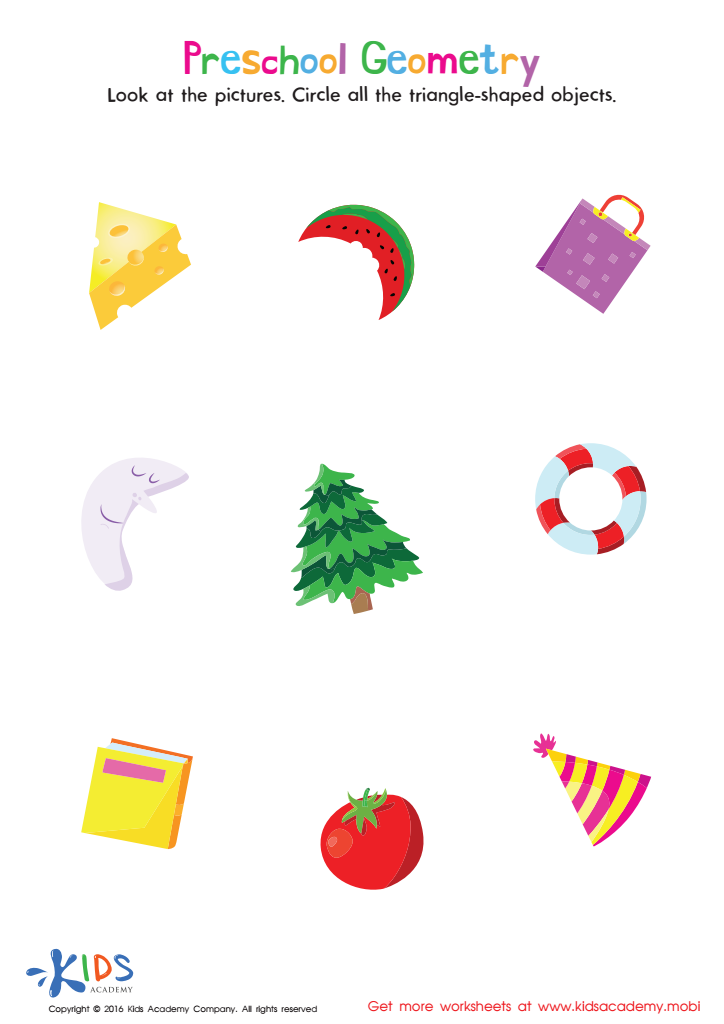Counting skills Normal Geometry Worksheets for Ages 3-6
6 filtered results
-
From - To
Discover our engaging "Counting Skills Normal Geometry Worksheets" designed specifically for children ages 3-6. These worksheets combine foundational counting concepts with essential geometry skills, making learning fun and interactive. Young learners will explore shapes, patterns, and numbers through colorful illustrations and playful activities. Our resources foster early mathematical understanding while encouraging children to develop their counting skills in a hands-on way. Perfect for home or classroom use, these worksheets promote critical thinking and problem-solving abilities, ensuring a strong math foundation. Engage your little learners today with our thoughtfully crafted geometry and counting worksheets that inspire curiosity and confidence!
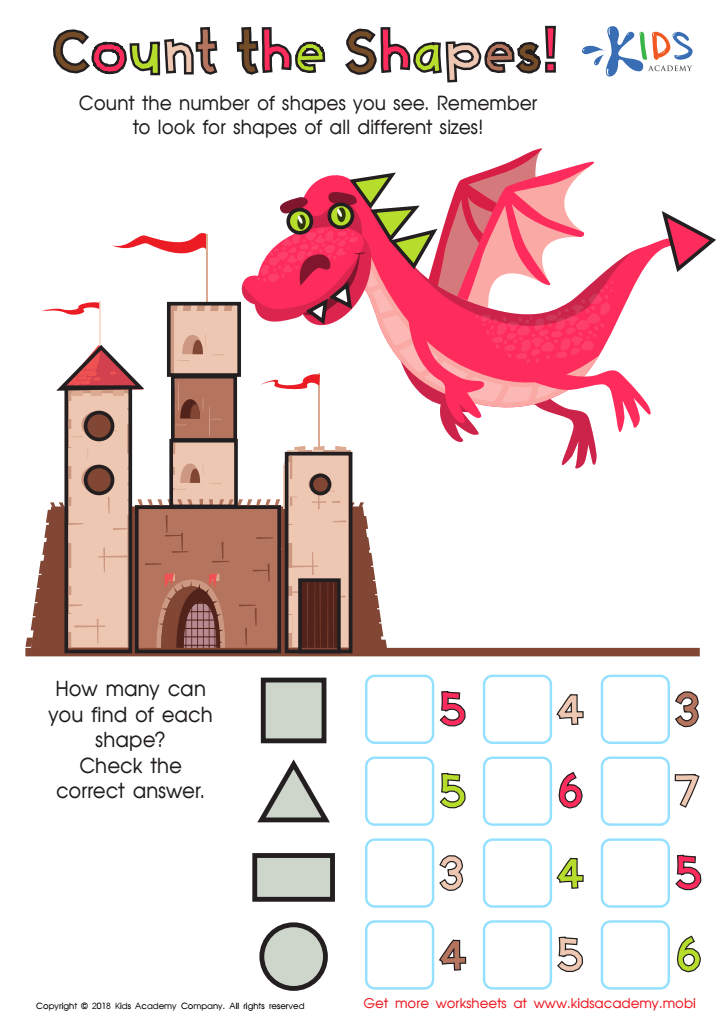

Count the Shapes Worksheet
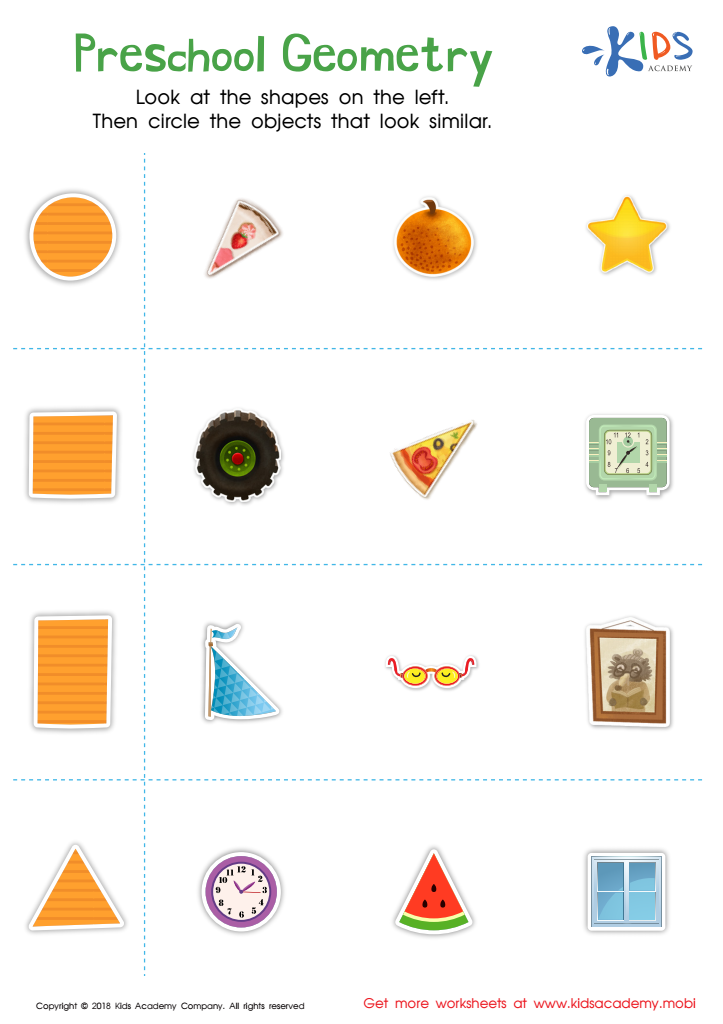

Preschool Geometry Worksheet
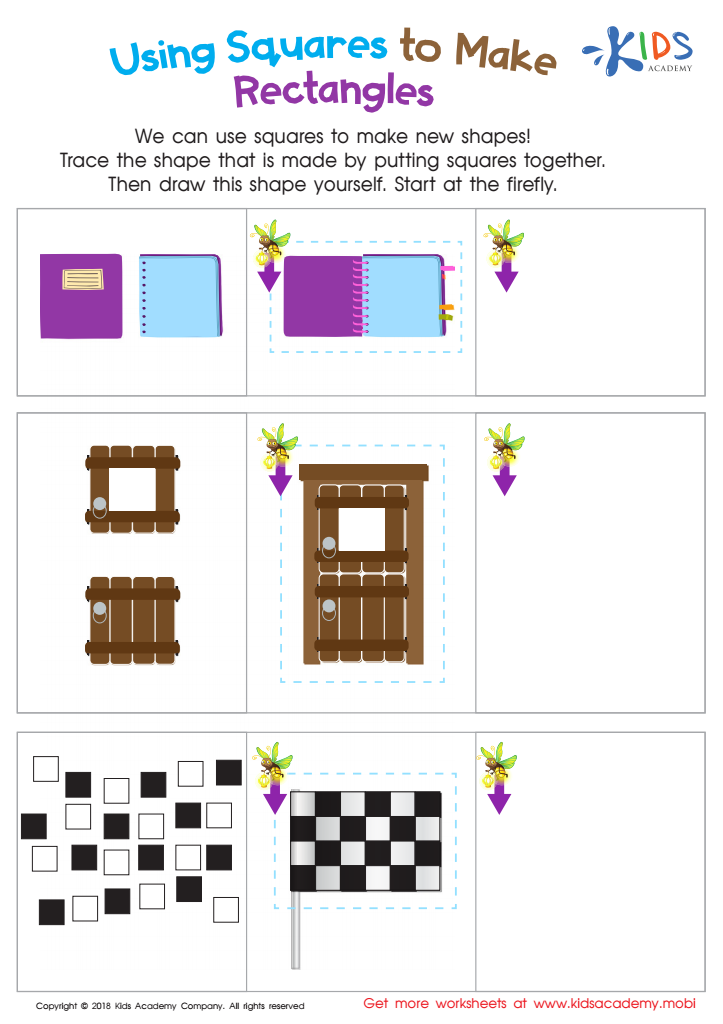

Using Squares to Make Rectangles Worksheet
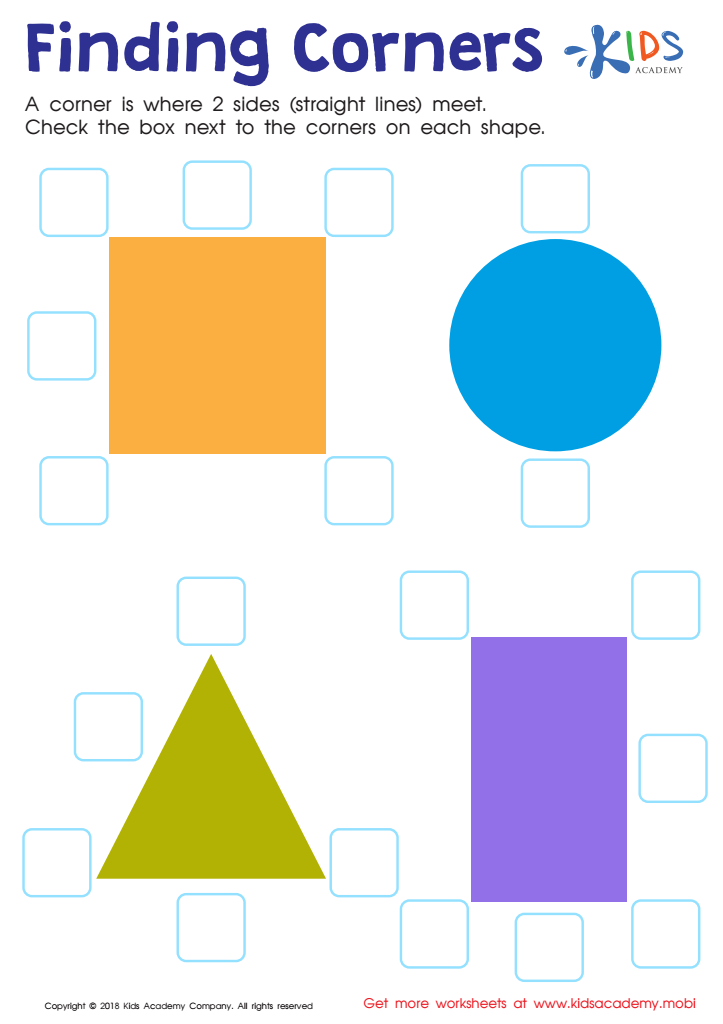

Finding Corners Worksheet
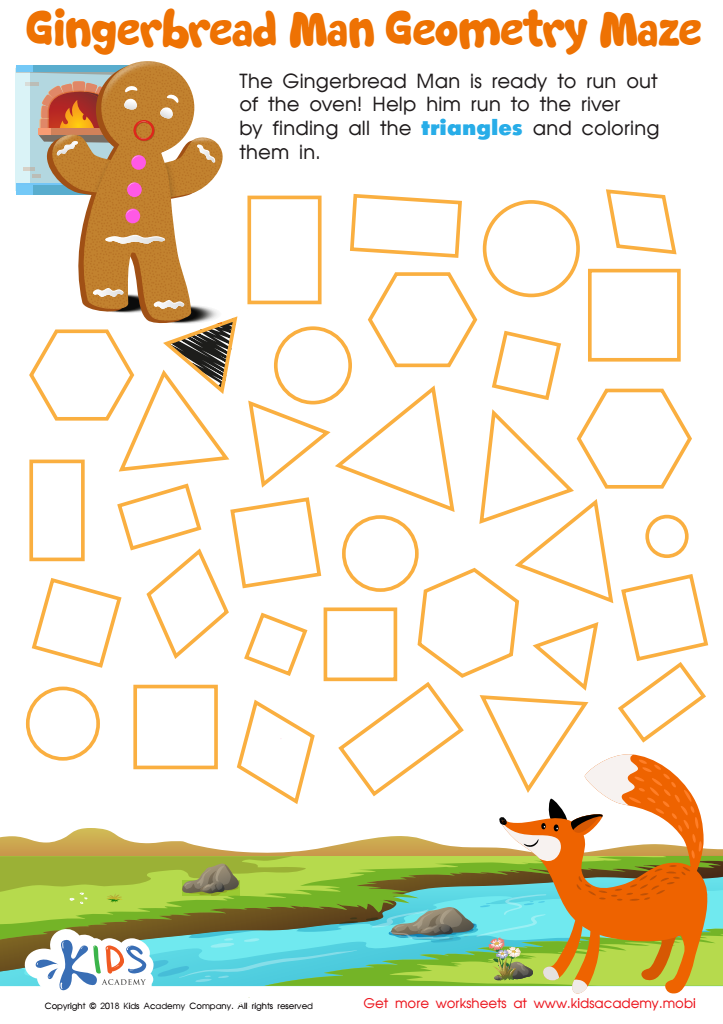

Gingerbread Man Geometry Maze Worksheet
Counting skills and an understanding of basic geometry are fundamental components of early childhood education, crucial for children's cognitive development and future academic success. For children aged 3-6, these skills lay the groundwork for mathematical thinking and problem-solving.
Firstly, counting is not just about rote memorization; it's about grasping the concept of quantity and understanding relationships between numbers. Early experiences with counting foster logic and reasoning, promoting better skills in mathematical operations later on. Furthermore, activities that involve counting—like sorting objects, group games, or simple puzzles—enhance critical thinking and fine motor skills.
Similarly, an introduction to normal geometry, which encompasses basic shapes and spatial awareness, enriches a child’s observational skills. Recognizing shapes and understanding their properties allows children to make sense of the world around them, promoting creativity and effective communication in describing their environment. Geometry activities, such as block building or drawing shapes, encourage exploration and logical reasoning.
By prioritizing counting and geometry skills in early learning, parents and teachers equip children with essential tools to navigate their educational journey, setting them up for success in advanced math concepts in later grades. Engaging children in these foundational skills cultivates a lifelong love for learning and discovery.
 Assign to My Students
Assign to My Students











